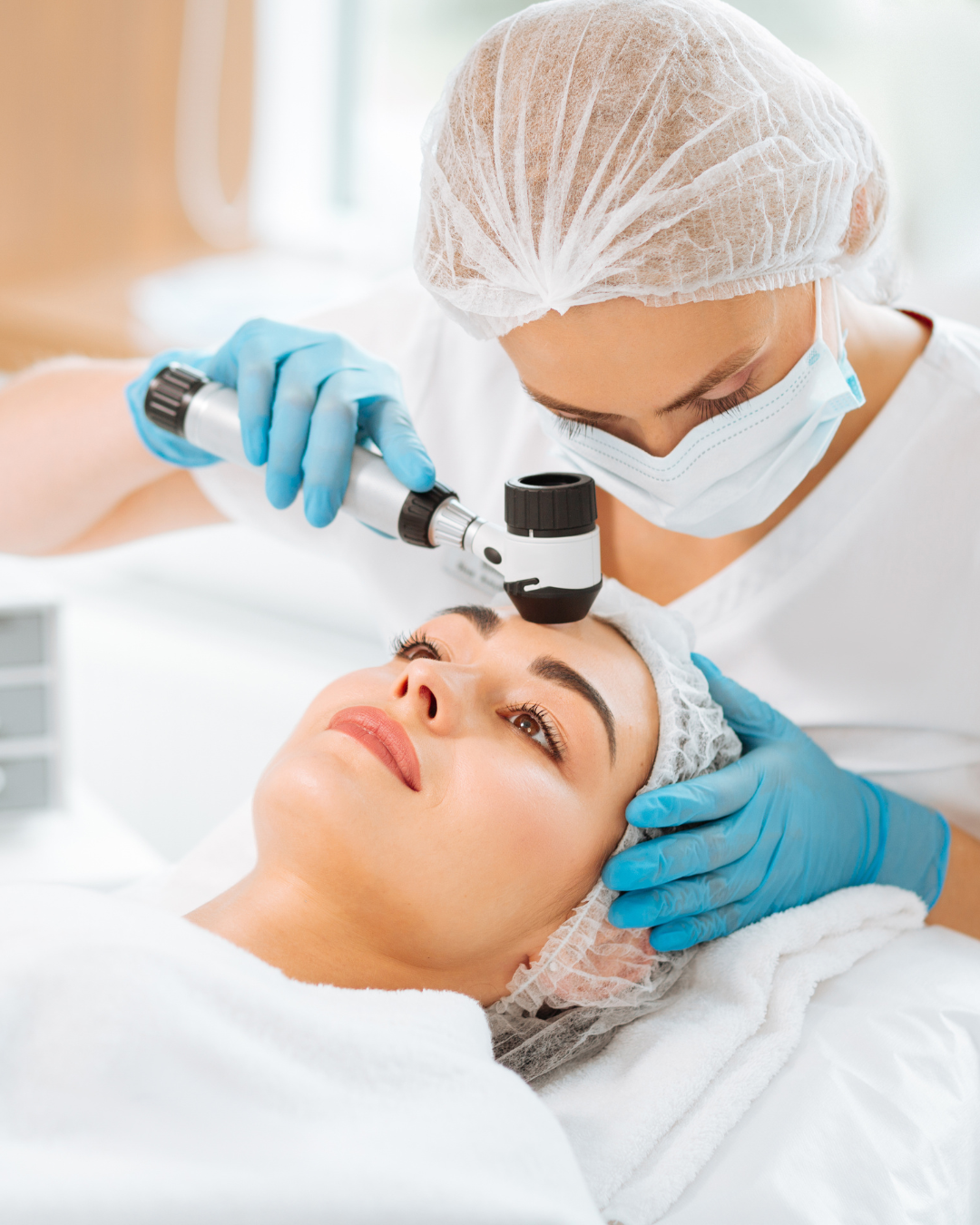Dermatology: A Guide to Skin, Hair & Nail Health
Dermatology: A Guide to Skin, Hair & Nail Health
A Dermatologist is a medical specialist trained in diagnosing and treating conditions related to the skin, hair, nails, and mucous membranes. Dermatology encompasses both medical and cosmetic aspects, addressing concerns from chronic skin diseases to aesthetic skin enhancement. Dermatologists are skilled in managing a wide spectrum of conditions—ranging from acne and eczema to skin cancer—and are trained in various procedural and surgical techniques for skin care.
The Role of a Dermatologist
The Role of a Dermatologist
Dermatologists play a crucial role in maintaining the health and appearance of your skin, as well as detecting and treating serious conditions early. Their responsibilities include:
Accurate Diagnosis: Identifying skin disorders using visual examination, dermatoscopy, and biopsy.
Chronic Skin Condition Management: Providing ongoing care for long-term issues like psoriasis or eczema.
Cosmetic & Aesthetic Care: Offering treatments for skin rejuvenation, pigmentation, acne scars, and more.
Skin Cancer Detection: Early diagnosis and removal of suspicious skin growths or moles.
Surgical Dermatology: Performing minor surgeries such as mole removal, cyst excision, and skin biopsies.
Caring Hands, Trusted Doctors: Our General Physician Team
Common Conditions Treated by Dermatologists
Common Conditions Treated by Dermatologists
Dermatologists are trained to manage a broad range of dermatologic concerns, including:
Acne and Acne Scars
Eczema (Atopic Dermatitis)
Psoriasis
Fungal Infections (Ringworm, Candidiasis)
Hair Loss (Alopecia) and Dandruff
Skin Allergies and Rashes
Pigmentation Disorders (Melasma, Vitiligo)
Warts, Corns & Skin Tags
Nail Infections and Disorders
Skin Cancer (Melanoma, Basal Cell Carcinoma)
Cosmetic Concerns (Wrinkles, Fine Lines, Uneven Skin Tone)
Diagnostic Techniques in Dermatology
Diagnostic Techniques in Dermatology
Dermatologists use a variety of tools and tests to evaluate skin conditions, such as:
Clinical Skin Examination: Visual assessment of affected areas.
Dermoscopy: Magnified inspection of skin lesions.
Skin Biopsy: Removal of a small sample for microscopic examination.
Allergy Testing: Patch tests to detect allergic skin reactions.
Wood’s Lamp Examination: For fungal and pigmentation disorders.
Trichoscopy: Non-invasive hair and scalp assessment.
Treatment Options
Treatment Options
Dermatologists offer evidence-based, tailored treatment plans using both medical and procedural options:
Topical and Oral Medications: For inflammation, infection, or acne.
Laser Therapy: For hair removal, pigmentation, and rejuvenation.
Chemical Peels and Microdermabrasion: For smoother, clearer skin.
Cryotherapy: Freezing off warts or pre-cancerous lesions.
Botox & Fillers: For anti-aging and wrinkle treatment.
Surgical Procedures: For mole, cyst, or tumor removal.
Tips for Healthy Skin with Dermatologist Guidance
Tips for Healthy Skin with Dermatologist Guidance
To stay healthy and prevent illness:
Follow a Consistent Skincare Routine: Use dermatologist-recommended products.
Use Sunscreen Daily: Protect your skin from harmful UV rays.
Avoid Self-Medicating Skin Issues: Always consult a professional.
Keep Hydrated and Eat a Balanced Diet: Nutrition reflects on your skin.
Schedule Regular Skin Check-Ups: Especially if you notice new or changing spots.
When to See a Dermatologist
When to See a Dermatologist
You should consult a dermatologist if you have:
Persistent or worsening skin conditions
Unexplained rashes or skin discoloration
Hair fall or scalp issues
Nail abnormalities or infections
Desire for cosmetic skin improvement
Suspicious moles or growths
Conclusion
Conclusion
Dermatologists are essential partners in maintaining healthy, radiant skin and preventing serious skin diseases. Whether you're seeking relief from a chronic condition or enhancing your skin’s appearance, a dermatologist offers specialized, science-backed care. At our clinic, our expert dermatologists are dedicated to helping you look and feel your best—inside and out.




